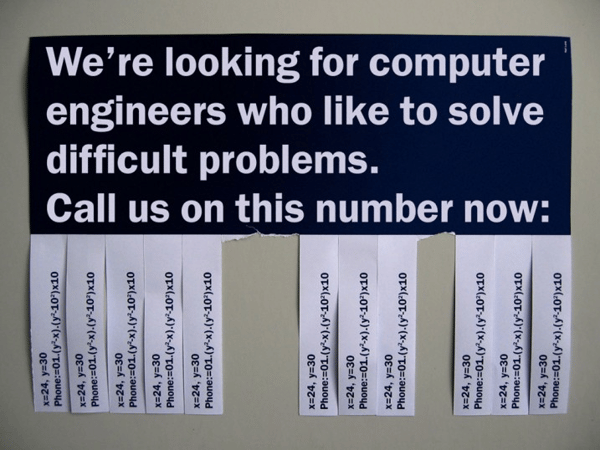
At Blackball, we often meet founders with ideas for great new software products and I enjoy talking with them about how to develop and scale their platform as they take on the world.
There are generally two types of founders, those who have the technical skills to deliver a minimum viable product and those who don’t. We loosely refer to this second group as non-technical founders, and unfortunately they are often placed at a disadvantage because without the personal expertise to build their product, they need to buy it.
While non-technical founders often have expertise that are just as essential to the success of the business e.g. outstanding sales, marketing, customer satisfaction and investor relations, they still have to produce a product and there’s no one right way to do it.

The first Apple computer was designed and hand-built by Steve Wozniak. It was his friend Steve Jobs who had the idea of selling it.
Essentially though, there are three options:
- Find a technical co-founder
- Hire a development team
- Engage outside developers.
Let’s explore these options in a bit more detail.
1. Find a technical co-founder
If you’re wanting to bring on board a partner as a technical co-founder, finding the right person is critical. It’s a bit of a cliché, but good fit is essential. Apart from mutual trust, you both have to share the same strategic vision, agree on the short, mid and long term objectives, and understand what a business exit might look like.

Once found, a technical co-founder can build the minimum viable product to get to market quickly, or produce the prototype to attract early investors. Your technical co-founder will also be responsible for the success of the tech stack and many VCs prefer investing in startups with multiple founders although some research shows the contrary.
However, bringing on a technical co-founder means that you immediately give up equity in your business, perhaps without even knowing your partner very well. Your co-founder might not have experience with the challenges that your startup will face and you need to keep in mind the unfortunate divorce statistics - 35% of founders are likely to split - making a separation strategy essential.
The early incubation of technical startups also usually leans heavily on software development. This means your co-founder will be pulling some big hours for little to no money, so you might be looking at a younger person with no family or mortgage to support.
Most importantly - modern software development is so sophisticated that rarely can one person perform all the required functions to a professional level. Your product will likely need all of user interface/experience, business-logic and analysis, database design, performance at scale. Even if your technical co-founder is a super-star, it is likely they will need to augment at least one of these skills with an outside hire.
2. Hire a development team
So, you’ve raised some seed capital or mortgaged the house and decided to hire a development team. You get to set the rules, build the culture, do it your way… and you aren’t substantially diluting your equity. It’s a nice feeling...
Just keep in mind that good developers are expensive. You’re competing against the likes of Xero who offer fantastic perks and work environment - on top of a lucrative paycheck. So make sure you take into account the expenses that go beyond salaries - think desks, hardware and building a positive business culture.
Interns and recent graduates are cheaper, but need direction and support - which might be okay if they are working closely with a technical founder but can result in issues if you don’t have those skills. It is also easy to incrementally hire lower cost developers as funds allow but eventually finding yourself with a team of relatively inexperienced developers who require a higher level of support where you might have been better off with fewer more qualified developers.

If you hire developers, you need to have a decent technical understanding to ensure what’s being developed is right for the business. If you don’t have those skills, it’s a good idea to find technically-savvy advisors early to fill this gap.
3. Engage outside developers
If you’re unable to support an in-house team or you need to scale up/down quickly, then outside agencies are your next option.
While usually more expensive (at least, initially) than an in-house team, an agency will allow you greater control over costs (you can cut services when you don’t need them), are likely to have a greater mix of the different skill sets needed, and will smooth out the disruptions caused by staff turnover.

However, the biggest advantage of using an agency is the experience they bring. Chances are, they’ve worked with dozens of other startups and can give you a huge head start with the wealth of knowledge they have accumulated. This may manifest early as higher costs, but will very quickly mean overall lower costs with a stable system and peace of mind.
Finally, outsourcing to a cheaper country can be a good option, and is one I am often asked about. This can be a good way to reduce costs, but I usually advise against it in the early stages as you need to have sufficient internal resources to be able to manage overseas development efficiently.
Where to from here
Think through the pros and cons of these approaches and which you think would work best for you and your circumstances. You may also want to consider a hybrid approach: find a technical co-founder, use an agency to help scaffold out your vision and get you to market then bring in your own developers to fill in all the blanks.
Regardless of which option you decide to go with, here are some things to keep in mind as a non-technical founder.
- Make sure you understand the software delivery process (my book may be a useful resource for you)
- Be the product owner until you’re comfortable the product is meeting your vision
- Invest in a sound architecture for your software and keep an eye on the amount of technical debt which is being introduced. We’ve seen too many instances where the website or app looked fantastic but were built on a rickety foundation of poor planning decisions and bad development.
- Use advisors to plug the gaps in both your knowledge and the knowledge of your team.
- Stay away from a turnkey solutions as chances are your first version will change substantially over time so plan for the short, medium and long term.
- Ask for help early and learn from the mistakes of others.
This blog post is written by Ben Liebert, Icehouse Community Tenant and Founder of Blackball Software. Ben has been helping start-ups and businesses get their products to market successfully for more than a decade. You can subscribe to his free email series: How to know if your software developer is trying to kill you.



